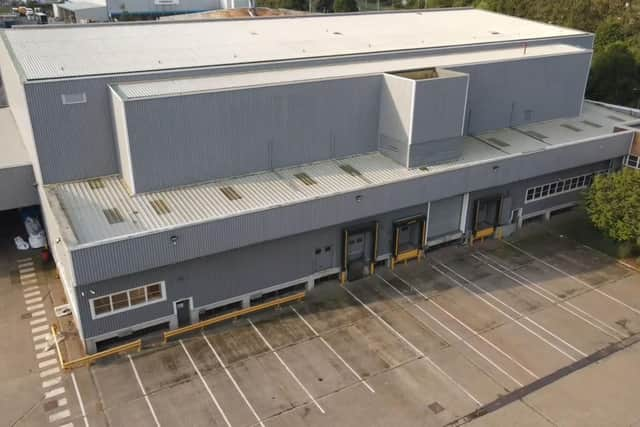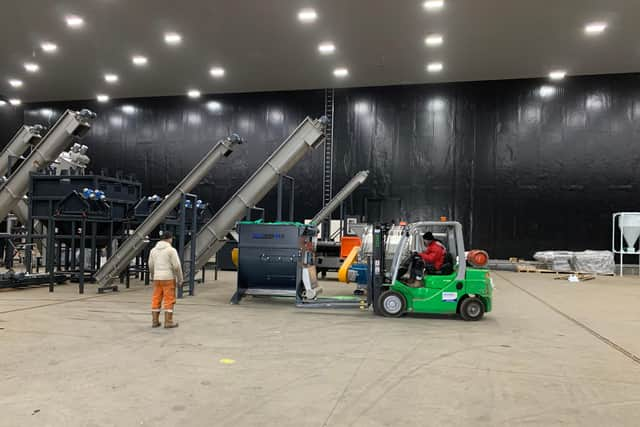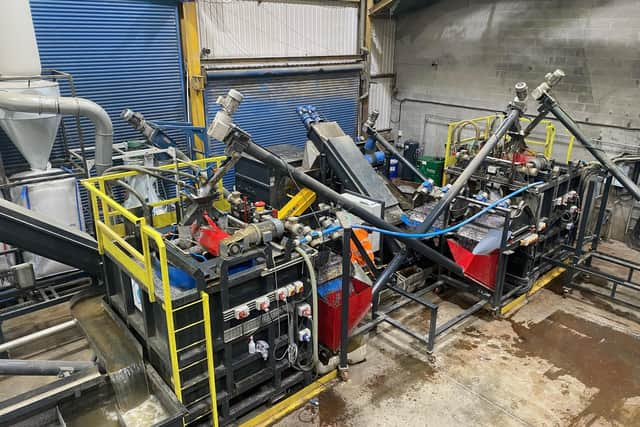New Scottish plant to recycle problem black plastic and film wrappers
The facility, which is capable of dealing with materials such as medical and fishing industry waste, black food packaging and wrapping film, will be built in Bellshill, in North Lanarkshire.
Newcastle-based firm Impact Recycling has commissioned the new facility following the successful development of its breakthrough plastic recycling technology.
Advertisement
Hide AdAdvertisement
Hide AdOnce up and running, the site will support 30 new jobs in the area.


It will be capable of processing around two tonnes of plastic waste every hour – items that would normally have ended up in landfill.
The unique technology uses a water-based density separation system that sorts plastics exclusively on properties, making it easier to purify black plastic and materials such as flexible wrappers.
Following the separation process, the purified plastic is then recycled and supplied to manufacturers who remould it for consumer and industry goods, saving the equivalent of 4.2 tonnes of carbon dioxide for every tonne recovered.
David Walsh, chief executive of Impact Recycling, said: “Plastic can take up to 100 years to degrade, with terrible repercussions for our environment such as plastic ending up in the sea or in our soil.


“Many consumer products use dark plastic and flexible plastic, which are more complicated to recycle and therefore have higher chances of ending up in landfill.
“Our technology solves this challenge using a water-based solution that can identify and sort multiple colours and types of plastic, therefore helping to avoid plastic pollution.”
More than two million tonnes of plastic packaging waste is thrown away annually across the UK, including about 15 million bottles every day.


Advertisement
Hide AdAdvertisement
Hide AdOnly around 45 per cent is recycled, meaning more than half ends up buried in the ground or becomes litter, polluting the environment.
Estimates suggest around 12 million tonnes of waste plastic ends up in oceans around the world each year, where it poses a significant risk to sealife.
It causes the deaths of around 100,000 marine mammals and turtles and one million seabirds annually.
Impact Recycling received a £3.1 million grant from government agency Innovate UK’s Sustainable Innovation Fund to develop the system.
Jonny Voon, head of the Sustainable Innovation Fund at Innovate UK, said: “Key to a sustainable recovery is innovation.
“Dynamic companies with unique solutions to the economy and society’s biggest challenges are a critical part of our ecosystem.
“I’m delighted to see how Impact Recycling’s innovative technology, supported by the Sustainable Innovation Fund, is contributing to the country’s net zero goals and providing jobs for the local economy.”
Mr Walsh added: “The need to avoid plastic ending up in landfill has never been greater, however as a start-up it can be challenging to secure cashflow and funding to put towards research and development, especially at an early stage.
Advertisement
Hide AdAdvertisement
Hide Ad“Thanks to the support we’ve received from Innovate UK’s Sustainable Innovation Fund, we’ve progressed from a lab-scale trial all the way to a commercial-scale rig where we can process up to two tonnes of flexible plastics per hour, so we can continue to recycle more complex plastics.”
Recent figures show Scotland at the bottom of the UK’s waste league tables, with just over 40 per cent of household trash recycled in the past year.
England didn’t do much better, achieving 42 per cent, compared to nearly 51 per cent in Northern Ireland and more than 64 per cent in Wales.
Innovate UK’s Sustainable Innovation Fund is a £250 million public investment programme that provides financial backing and support for innovation projects to help the UK’s economy and society recover from the pandemic greener, fairer and more resilient.
A message from the Editor:
Thank you for reading this article. We’re more reliant on your support than ever as the shift in consumer habits brought about by coronavirus impacts our advertisers.
If you haven’t already, please consider supporting our trusted, fact-checked journalism by taking out a digital subscription.
Comments
Want to join the conversation? Please or to comment on this article.
